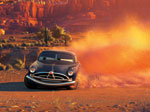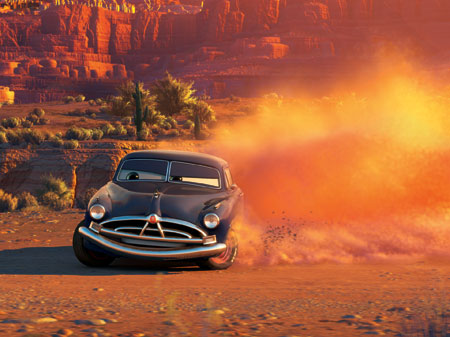Cars
 Never did I understand the appeal of stock car racing. Cars of relatively moderate speed (considerably slower than Formula One) go around on a circuitous path for seemingly endless scores of laps. I tried doing a search on the internet for NASCAR rules, to understand more about the race but invariably it turned up dozens of articles about crashes. Wait… now I get it, sort of. People…
Never did I understand the appeal of stock car racing. Cars of relatively moderate speed (considerably slower than Formula One) go around on a circuitous path for seemingly endless scores of laps. I tried doing a search on the internet for NASCAR rules, to understand more about the race but invariably it turned up dozens of articles about crashes. Wait… now I get it, sort of. People…

Never did I understand the appeal of stock car racing. Cars of relatively moderate speed (considerably slower than Formula One) go around on a circuitous path for seemingly endless scores of laps. I tried doing a search on the internet for NASCAR rules, to understand more about the race but invariably it turned up dozens of articles about crashes. Wait… now I get it, sort of. People go for the crashes. The race is just a way to facilitate them. That’s one of numerous cultural observations in “Cars.” directed by John Lasseter.
Here, Pixar’s worn-out format of coming-of-age story is only slightly deviated: Lightning McQueen (Owen Wilson) is an anthropomorphized stock car competing for a chance at the Piston Cup, the most coveted of trophies in the car-inhabited world of this movie. Like every foolishly ambitious character in an animated film, especially those made by the creatively bankrupt Disney, he risks too much by doing the one hundred laps of the Piston Cup without tire changes. Inevitably he blows a tire; Chick Hicks (Michael Keaton) and the King (Richard Petty) easily catch up. That’s just the first of many predictable events in this fairly routine film. But Americans don’t like films about learning from losing as much as they like films that are about winning which is rather odd—considering how many more losers there always are than winners. So, instead the movie becomes about winning for different reasons.
Suffice it to say, McQueen’s rig, Mack (John Ratzenberger; stick around during the credits to see a funny vignette involving him) dozes off and three or four punks (and by punks I mean souped up street racers) cause him to lose his cargo. McQueen rolls off into the interstate and spins out into the middle of nowhere. He tries to catch up with Mack but finds himself instead in the small town of Radiator Springs. In a completely manufactured Rube Goldbergian incident, McQueen tears up the road. The court, run by a curmudgeonly sedan named Doc (Paul Newman), sentences McQueen to community service—repair the road. He’ll try several times to escape but, as you well know, the point here is for him to grow an appreciation of nature, small towns, blah blah… all that sentimental goo. Of course Doc is the wiser, experienced mentor who teaches Lightning a thing or two about racing. In his day, well… nevermind. You already know.
As is often the case, I found the characterizations more interesting than the story. There are all types, including a jeep named Sarge (Paul Dooley), a stoner VW bus named Filmore (George Carlin), Ramone (Cheech Marin) the low-rider, a drive-in fill-up station owner aptly named Flo (Jennifer Lewis), and the rusty tow truck, Mater (Larry the Cable Guy). Mater (as in Tow Mater) is the requisite goofy sidekick who befriends McQueen and teaches him the ways of hickdom. Fortunately, neither he nor any other car is forced by Disney’s marketing executives to break out into song, but he does introduce McQueen to cow… er, tractor tipping. The town’s lawyer, a hotshot Porsche named Sally (Bonnie Hunt) who left L.A. and found herself (surprise) loving the countryside, becomes the love interest around which the artificial catharsis of McQueen’s eventual return to the big race is structured. That, too, of course, is only the bend before the ricochet… if you get my meaning. The romance between Sally and Lightning doesn’t work, perhaps because they’re too similar—fast, well-polished cars devoid of any of the dents or dings that make for unique personalities—and have nothing to work off each other to generate any sparks of tension.
Once again, the team at Pixar shows off their technical prowess in race scenes that, aside from a stadium filled with talking cars, look extremely realistic and shot and edited in ways that betray the utter inanity of watching a real NASCAR race. There are some clever jokes outside of the force-fed pop culture references. For example, the mesas in the desert are formations that look like the fronts and rears of classic cars—literally monuments to the past. Dust, sparks and flames come alive and vibrantly so. Ultimately, though, the story is uneven. There are engaging and funny moments, especially cute scenes with the bickering Italian metro cars who run the local tire shop: The loquacious Luigi (Tony Shalhoub) and the guarded genius Guido (Guido Quaroni, a Pixar engineer). Rest assured, quiet little Guido will have his day. However, scenes involving the colorful townspeople, capitalizing largely on Paul Newman’s skill at playing wise yet ostensibly cantankerous old men, are repeatedly interrupted by long stretches of boring homages to the world of celebrity (no doubt the hubris of Hollywood poking through at every possible moment in an otherwise meaningful parable).
Mind you I’m more of a metropolitan than anything else, but I have an odd respect for people who are content to live within their means and appreciate what they have rather than spend their entire lives in an endless attempt to acquire everything they don’t. But not all people in small towns are necessarily friendly, and not all is necessarily beautiful. I think it’s an idealistic fantasy, a fable adored most by those who now have everything (read: movie executives) and imagine themselves being rugged outdoorsmen or what have you. Entire industries have been built around this sort of Marlboro Man mythmaking. Isn’t it funny, then, that the footnote clips at the end credits show Sarge running an SUV Boot Camp where one of the monstrous vehicles exclaims he’s never been off paved roads before? That joke underscores the film’s entire problem. It’s not interested in embracing balanced, real values. “Cars” embraces one idyllic fantasy from the vantage point of another, as if no shades of grey exist in between Hollywood, California, and Bozeman, Montana.
 Cars • Dolby® Digital surround sound in select theatres • Aspect Ratio: 2.35:1 • Running Time: 116 minutes • MPAA Rating: G • Distributed by Buena Vista Pictures
Cars • Dolby® Digital surround sound in select theatres • Aspect Ratio: 2.35:1 • Running Time: 116 minutes • MPAA Rating: G • Distributed by Buena Vista Pictures